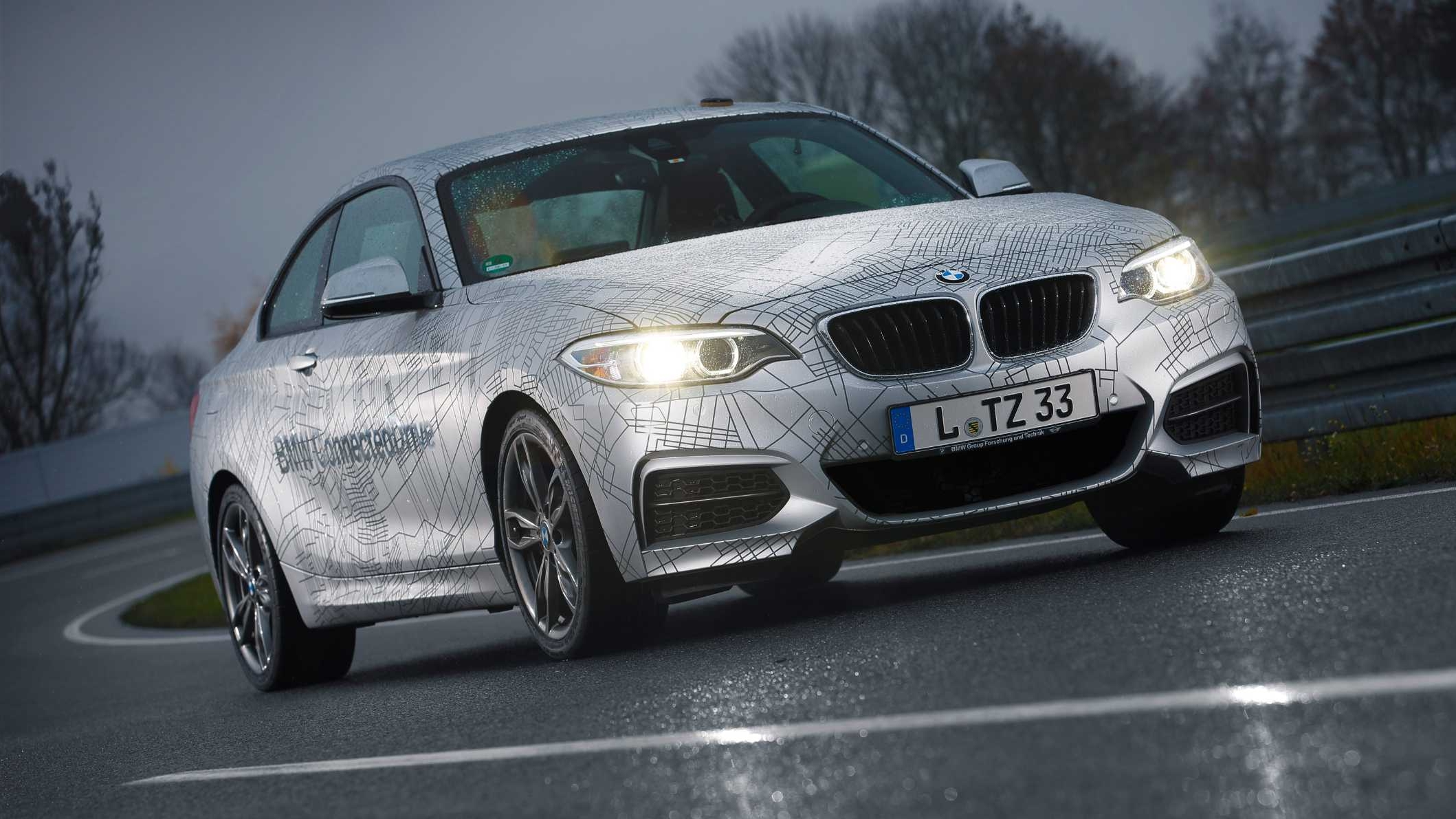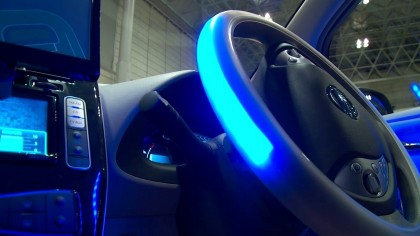The exciting technology that's making driverless cars a reality
What can you expect from the brave new world of driverless cars?

Sign up for breaking news, reviews, opinion, top tech deals, and more.
You are now subscribed
Your newsletter sign-up was successful
As BMW enters the race to build a fully functional self-driving car, and with this year's CES giving away 140,000sq ft of exhibition space to the concept, it's no longer a case of if, but when will these vehicles arrive on our streets.
Had too many Jägermeisters? No worries, get yourself some kip and let the car do the driving.
Can't find your vehicle in the parking lot? Don't sweat it, the car will come to you.
This isn't fantasy − tech companies and car manufacturers are teaming up to make it a reality.
The idea is that your car is merely another jigsaw piece in your 'connected living' lifestyle, with your phone acting as the control centre.
Traffic, weather and damage reports will be beamed directly to your phone long before you get close to your car in the hope that you're better prepared for potential inconveniences.
Yes it's fascinating, but how soon will this be a reality? And what will a driverless car future look like?
Sign up for breaking news, reviews, opinion, top tech deals, and more.
The future is (almost) here
Google's fleet of experimental drone cars have already completed over 500,000 accident-free driverless miles around San Francisco.
BMW unveiled a driverless car that can drift and slalom around obstacles at CES this year.
Audi showed us its new automated-parking feature, which is controlled via a smartphone app and a 3G connection.
And, in a self initiated game of pious one-upmanship, Nissan made petrol heads feel briefly bad about the destruction of the planet by introducing a driverless version of its (relatively) super-selling electric car, the Leaf.
The fact is, driverless cars are happening. The technology has existed for some time but governments haven't been so quick to respond.
Thankfully that's changing. Legislation is being carefully considered across the EU and North America. In the US, Nevada enacted legislation in 2012 recognising and authorising driverless cars in the state, and the Department of Motor Vehicles can now officially issue driverless car licenses.
In the UK, the National Infrastructure Plan has ring-fenced a £10m prize-fund for any city that wants to be a test bed for new driverless car technology.
Milton Keynes has already begun a driverless car programme and it hopes to have 100 'pods' − or, on closer inspection, 'humiliating oblong death-traps' might be a better name − very carefully tearing up Milton Keynes roads by 2017.

Forward thinking
"Google's fleet of experimental drone cars have already completed over 500,000 accident-free driverless miles around San Francisco."
Major manufacturers and tech giants are teaming up to bring us a pleasant and mildly entertaining Knight Rider future, and not a disturbing Minority Report 'Tom Cruise is still famous and eating placentas' future.
"It will happen in stages," says Futurologist and BBC talking head, Tom Cheesewright.
"By 2017 the next iteration of adaptive cruise control will be widespread. Not only does it keep you a safe distance from the car in front, it keeps you in your lane. Add this to self parking and sat nav and you're not far from an autonomous vehicle."
But he doesn't think we'll be buying them outright.
"It's far more likely that you'll be renting a driverless car, rather than buying one. With all the telemetry on board it will be very easy for manufacturers or third parties to lease them out and charge you based on your usage and how much you abuse the car. When it comes time for a service, the car could just take itself off to the garage and a replacement make it's way to you."
The benefit of these partnerships is the subsidiary technology that comes out of the developing projects.
Car manufacturers make cars (wait, what? Slow down, Einstein) but tech companies do just about everything else.
This is why Google and Nvidia have teamed up with GM, Honda, Audi and Hyundai − because they need each other. Car manufacturers want to get their cars into your home (figuratively, not literally − although this self-folding car might not have gotten the memo) and tech companies want their systems in your car. This is the 'connected living' vision of the future.